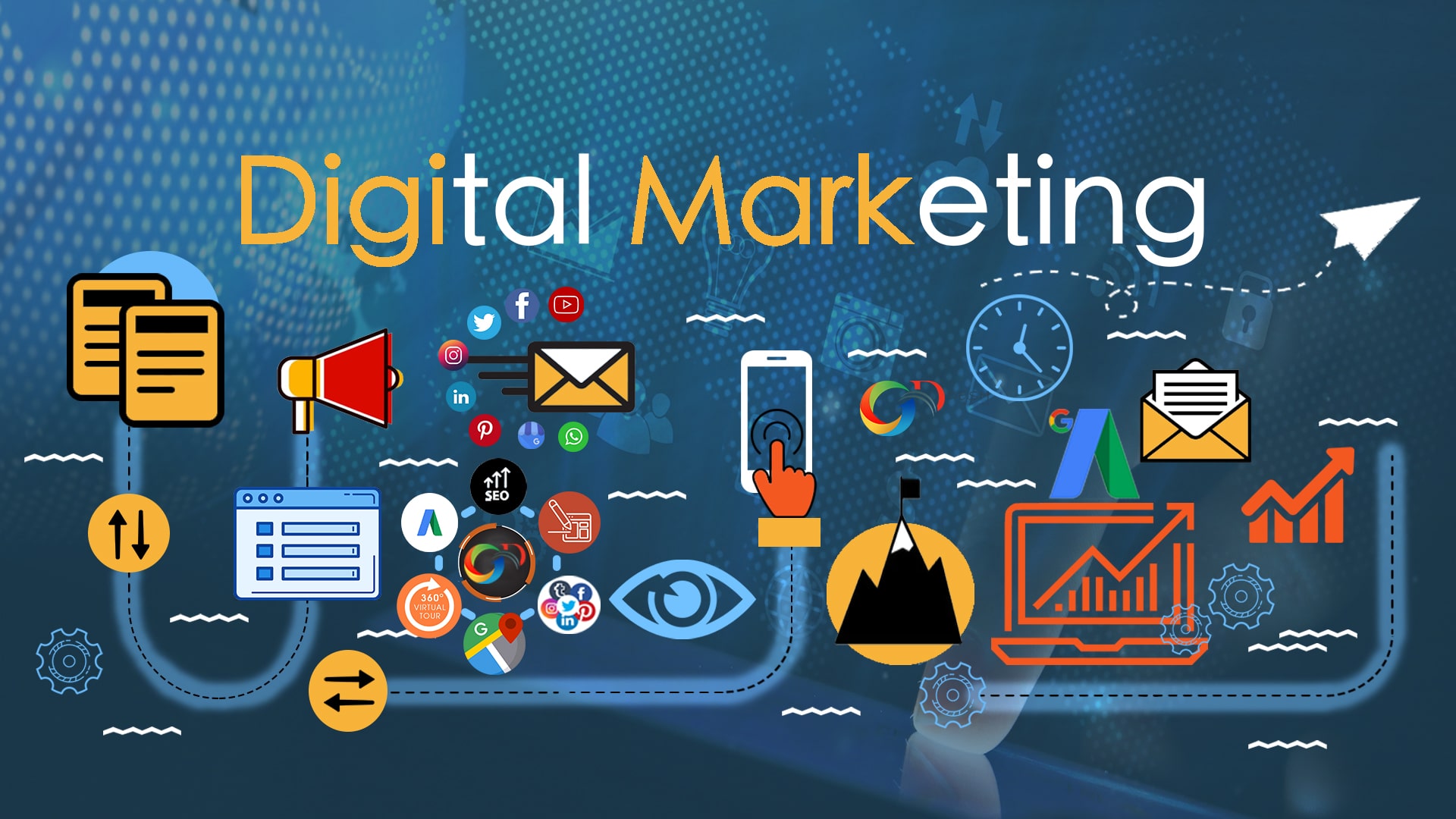
Digital marketing is a marketing medium performed using digital marketing tools and strategies to reach and engage a target audience. Digital marketing includes a range of strategies including SEO, content marketing, social media marketing, email marketing, paid advertising, and more.
Digital marketing is popular due to its global reach, cost-effectiveness, targeted approach, and real-time engagement capabilities. It helps businesses connect with customers, compete effectively, and adapt to changing market conditions.
Benefits of Digital Marketing
1. It’s Cost-effective
Digital marketing is cost-effective for many reasons. It precisely targets specific audiences, allocates budgets efficiently, and provides real-time result measurement. Unlike traditional marketing, it reduces resource waste by reaching the desired customer segments with precision and allowing campaign adjustments whenever required.
Tracking and analyzing performance enables businesses to optimize strategies, cut unnecessary expenses, and improve ROI. The absence of geographic constraints and reduced overhead costs enhance digital marketing's cost-effectiveness.
2. Digital Marketing is Precisely Targeted Advertising
Digital marketing allows precise focus on demographics, interests, and user’s online behaviors. Unlike traditional methods like TV or print ads, digital marketing allows the launching of customized campaigns to reach the right audience at the right time. It increases the conversion rates of campaigns. It reduces the cost by directing resources to the right audience.
Digital marketing utilizes platforms like social media ads, SEO, and email marketing for looking into insights into consumer behavior. This data-driven approach allows businesses to refine their strategies by analyzing performance metrics and adjusting targeting. It enhances efficiency and cost-effectiveness and ensures maximum value for every marketing dollar spent.
3. Digital Marketing Ensures Real-Time Engagement
Digital marketing allows businesses to interact and respond promptly to their audience. It ensures real-time user engagement.
Instant Communication
Digital marketing channels like social media, email, and live chat enable instant communication with the audience. It helps companies address inquiries, resolve issues, and provide real-time information, enhancing the brand's image in front of customers.
Social Media Engagement
Social media platforms like Facebook, Twitter, and Instagram are known for real-time engagement. Businesses can use social media platforms to respond to customer comments, messages, and mentions. It’s the best way to foster brand trust.
Live Chat
Now almost every website provides live chat support to ensure real-time conversations with customers. This is crucial in case you’re running an e-commerce website. By using the live chat feature, brands can address customer questions during the buying cycle.
4. Digital Marketing & Advertising Ensures Global Reach
Digital marketing provides a global reach, unlike traditional marketing with geographical constraints. It connects businesses with audiences worldwide through online channels like websites, social media, search engines, and email. It expands reach further into international markets without the high costs of physical stores or international ad campaigns.
Digital marketing allows businesses to customize strategies for global markets by customizing content, messages, and ads to local languages and preferences. This personalization sets it apart from traditional marketing.
5. Digital Marketing Enables Data-Driven Decision-making
Data-driven decision-making is a crucial element of digital marketing. It allows marketers to use data and analytics to create guided marketing strategies and actions. It helps businesses have access to a plethora of data generated by various online channels and make informed decisions to optimize their marketing efforts.
In social media campaigns, analyzing metrics like likes, comments, shares, and click-through rates helps brands assess the effectiveness of social content and its after-effects. This data reveals the content that resonates, ideal posting times, and fruitful engagement platforms. Real-time adjustments focus resources on what works, leading to better results.
Data-driven decisions apply to various digital marketing aspects, enhancing strategies and choices supported by concrete insights, not just in social media but also in email campaigns and website optimization.
6. Digital Advertising Brings Better ROI
Digital marketing offers a superior return on investment. Digital marketing outperforms traditional methods in terms of ROI. It excels due to precise audience targeting and real-time campaign performance measurement.
Digital marketing tools provide immediate insights through metrics like click-through rates, conversion rates, and cost per acquisition. This real-time data enables brands to perform data-driven decisions, optimized campaigns, and resource allocation, further improving ROI.
In contrast, traditional methods lack similar targeting and measurement capabilities, making it challenging to measure their effectiveness accurately. Digital marketing's cost-effective, data-driven approach frequently delivers a more favorable ROI for businesses.
7. Digital Marketing Offers Competitive advantage
Keeping up with digital marketing trends offers brands a competitive edge over the competition. Staying updated on industry developments and emerging technologies can help companies outshine their competitors.
Staying updated with digital marketing trends helps businesses adapt swiftly to changing consumer preferences and behaviors. This agility allows brands to adjust marketing strategies to better resonate with their target audience.
Adopting innovative digital marketing techniques and tools can boost a brand's online presence and engagement. By staying ahead with the latest social media tactics, businesses can capture their audience's attention and stay competitive. Digital marketing trends keep businesses relevant and position them as leaders in their respective industries. Those who proactively follow these trends are more likely to outshine their competition.
8. It Ensures Faster Campaign Deployment
Digital marketing helps businesses in rapid campaign deployment, allowing businesses to respond swiftly to market shifts. Unlike traditional marketing, digital marketing ensures immediate audience reach which is crucial for adapting to fast-changing market dynamics and maintaining relevance.
Campaigns are highly adaptable, enabling quick adjustments to align with changing conditions and consumer demands. Real-time data and analytics empower data-driven decisions, optimizing campaigns without delay.
9. Digital Marketing Campaigns are Fully Scalable
Scalability is an important aspect of digital marketing that helps businesses respond to growth and changing objectives. It's crucial in the fast-paced digital landscape. Digital marketing offers flexibility in resource allocation which makes it suitable for businesses of all sizes. Whether you're a startup building an online presence or a large corporation expanding into new markets, you can customize your digital marketing to your budget and growth goals.
As businesses grow and objectives change, digital marketing enables targeted expansion by adjusting campaigns for new markets. The data-driven approach provides insights for scaling decisions, focusing efforts on strategies and channels that deliver the best results.
10. Digital Marketing Builds Brand Loyalty
Engaging with your audience through digital channels is a powerful way to build brand loyalty and encourage advocacy. Businesses can establish meaningful relationships with customers by offering consistent, personalized communication. It keeps the brand in mind but also makes customers feel valued and understood.
Digital marketing allows businesses to actively listen, respond to inquiries, acknowledge feedback, and act on suggestions. All these efforts collectively build trust and long-lasting loyalty. Real-time engagement and interaction platforms build a sense of community and connection.
Transparency and authenticity through sharing behind-the-scenes content, values, and real customer stories humanize the brand and build trust. Consistently delivering value, solving problems, and entertaining the audience turns brands into trusted resources and partners, enhancing customer loyalty. Satisfied customers can become brand advocates, remaining loyal and actively endorsing the brand to others, extending its reach and reputation.
11. Digital Marketing Provides Seamless User Experience
Digital marketing enhances user experiences through technology and personalized interactions. It optimizes websites for speed, ease of use, and cross-device compatibility, ensuring seamless visits.
User-friendly design and personalization improve engagement and conversions. Digital marketing employs various strategies, including email marketing and targeted ads, to deliver content matching users' interests. Interactive elements like social media, live chat, and user-generated content facilitate direct interaction and build relationships, creating a sense of community.

Sumant is an accomplished content marketer with years of experience in producing meticulously researched content in the dynamic world of digital marketing. His deep insights into industry trends, consumer behavior, and emerging technologies have consistently resulted in engaging, informative, and effective content.
